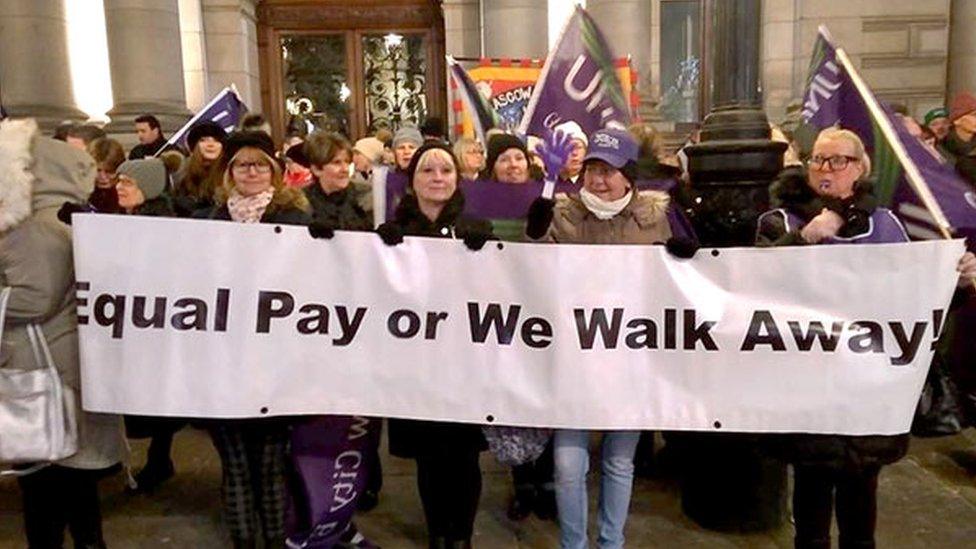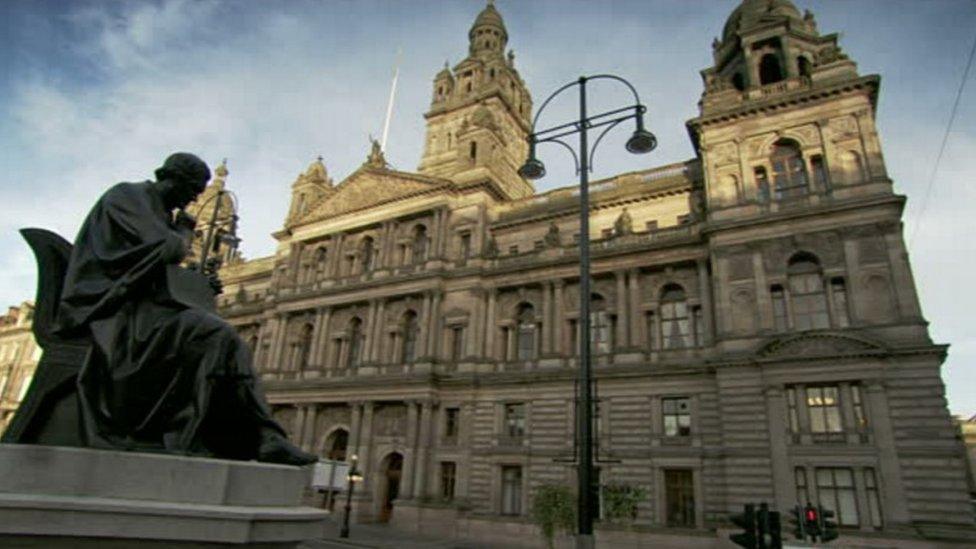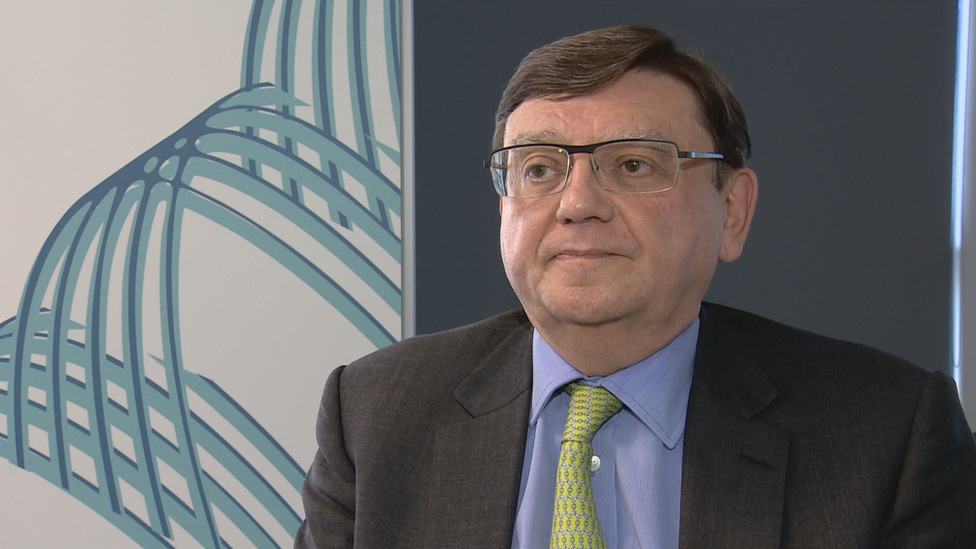Glasgow City Council leader says equal pay claims bill 'not known'
- Published

Glasgow City Council leader Susan Aitken said substantial progress had been made
The leader of Glasgow City Council has said she does not have an estimate for the cost of equal pay settlements with thousands of workers.
Susan Aitken said the suggestion the bill could be between £500m and £1bn had been "plucked out of thin air".
Her comments came as Scotland's public spending watchdog warned of Glasgow's "unprecedented" financial challenge.
Ms Aitken said negotiations were ongoing and there should be a figure by the end of the year.
She said that the payouts to thousands of mainly female workers would have a "very significant impact on the council" for many years to come.
But she said negotiations were ongoing and the council did not know what the cost would be.
Ms Aitken said the council was seeking to minimise the impact of jobs and services and ruled out selling off assets like Birmingham City Council did in 2013 when it was landed with a £1bn equal pay bill.
It was forced to sell off the the National Exhibition Centre to help pay its debts.
It has been suggested that Glasgow could sell off the SEC (Scottish Event Campus), which includes the Hydro Arena, or the Salvador Dali masterpiece Christ of St John of the Cross.
Ms Aitken told BBC Radio's Good Morning Scotland: "We have not looked at selling assets at this stage.
"We are certainly not discussing flogging off the Dali."

Ms Aitken said the council would not sell its Dali masterpiece

Ms Aitken became leader of Glasgow City Council in May last year when the SNP took control of the city from Labour, which had run it for decades.
In January she promised to draw a line under years of legal wrangling over equal pay and reach a settlement with thousands of workers.
How did the dispute happen?

Some claim the issue could cost the council as much as £500m to resolve
The claims relate to a Job Evaluation Scheme introduced in 2006, which had been intended to eliminate gender pay inequality.
However, the new system built in a three-year payment protection for men who lost out on bonuses, which was last year ruled discriminatory.
A long court battle has also raged over the design of the scheme itself.
It saw mainly female workers, in jobs such as caterers, cleaners and care assistants, paid less than male workers in jobs that were deemed to be of equal value, such as refuse collection.
After years of employment tribunal and court battles, the council said earlier this year that "negotiation" would solve the dispute, which currently affects about 8,000 employees.
Ms Aitken said the move drew a line under what she called "a decade of litigation" under the previous Labour administration.
She told Good Morning Scotland the council was in negotiations and a final settlement was expected by the end of the year, with payouts beginning in the next financial year.
The council leader said her staff were looking at options which would pay out on claims while protecting services and jobs "as much as we can".
She said these included more borrowing and "maximising income from assets" but not selling them off.
Ms Aitken said: "We came into this challenge with our eyes open.
"It is precisely because of the scale of the challenge that our predecessors in this job have wussed out of doing anything about it and kicked it down the road to the next person."

Key facts: Glasgow City Council

Population: 621,000
Workforce: 31,700 (full-time equivalent)
Net Revenue budget (day-to-day council spending such as wages): £1.52bn
Net capital budget (for new buildings and roads etc): £216m
Budget gap (difference between spending and income): £129m

What did the spending watchdog say?

Graham Sharp, of the Accounts Commission, said Glasgow faced unprecedented challenges
Scotland's public spending watchdog, The Accounts Commission, has investigated Glasgow City Council's finances for the first time since 2009.
It said the council was already facing a funding gap of almost £130m over the next three years before the cost of equal pay claims was factored in.
The watchdog noted that the council had "a good track record" of making savings and had cut more than £100m in the past two years.
Graham Sharp, chair of the Accounts Commission, said the "scale and complexity" of the challenges facing Glasgow were unique but said it had made "steady progress" in the past decade.
However, he said the council's existing funding gap did not include the potential impact of equal pay claims and the risk attached to the settlement was a cause of "serious concern".
Many other councils have already paid out for similar claims.
Last year, The Accounts Commission said more than 70,000 equal pay claims had been lodged against Scottish councils since 2004 and payouts, including compensation agreements and legal fees, totalled about £750m.